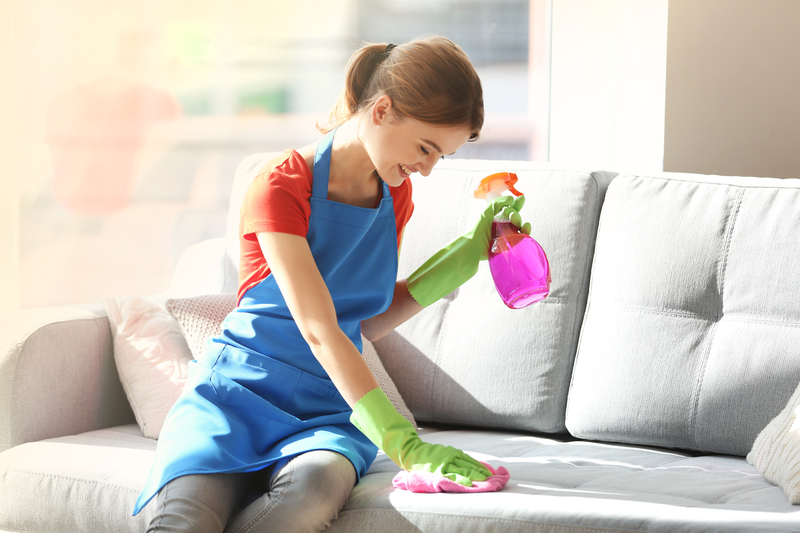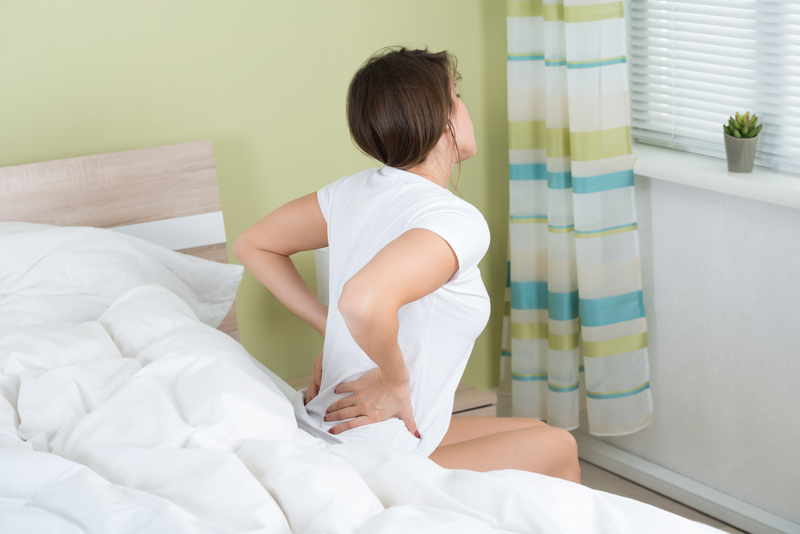The Ultimate Guide to Carpet and Floor Care
Posted on 23/08/2025
The Ultimate Guide to Carpet and Floor Care
Proper carpet and floor care is pivotal for maintaining the beauty, value, and hygiene of your home or business. With a myriad of flooring options available, each requiring specific attention, understanding effective maintenance practices can prolong their lifespan and ensure your surfaces always look their best. This comprehensive guide explores best practices for carpet cleaning, floor maintenance, stain removal, and overall floor care--making it your go-to resource for sparkling, well-maintained floors.
Why Carpet and Floor Maintenance Matters
Regular carpet and floor upkeep is about much more than appearance. Proper maintenance:
- Extends the lifespan of your flooring investment
- Enhances indoor air quality by removing allergens and dust
- Avoids the accumulation of dirt and bacteria
- Prevents expensive repairs or replacements
- Keeps your home looking clean, inviting, and well-cared for
Whether you have plush carpeting, elegant hardwood, trendy vinyl, or timeless tile, the strategies below will help you keep every type of floor in top shape.

Understanding Different Floor Types
The first step in floor care is understanding the unique requirements of each flooring type:
Carpet
Carpet comes in many materials and pile types, from luxurious plush to resilient Berber. Each has its care guidelines, but all carpets require frequent vacuuming, periodic deep cleaning, and quick stain treatment.
Hardwood
Wood floors add warmth and character but can be sensitive to moisture and abrasives. They benefit from gentle cleaning, protection against scratches, and occasional refinishing.
Laminate
Laminate flooring mimics wood and stone at a lower price point. These floors resist scratches but are vulnerable to water damage. Use only specific laminate cleaners and avoid excessive moisture.
Tile & Stone
Ceramic, porcelain, and natural stone floors are incredibly durable but can stain or lose their luster without proper care. Grout lines also need special attention.
Vinyl
Vinyl floors are affordable, stylish, and easy to clean. However, they can fade or warp with improper products or neglect.
Essential Tools and Supplies for Floor Care
Stock your cleaning closet with these must-have tools:
- Vacuum cleaner with HEPA filter and adjustable height
- Mops - both wet and dry
- Soft-bristled brooms for delicate surfaces
- pH-neutral floor cleaning solutions
- Microfiber cloths and mop pads
- Spot-cleaning spray and carpet stain remover
- Protective carpets pads and furniture coasters
Choosing the right equipment and products is essential for safe and effective carpet and floor care--always read manufacturer recommendations before using any cleaner.
How to Care for Your Carpet
1. Vacuuming Best Practices
- Vacuum high-traffic areas daily and other areas at least twice a week
- Use slow, overlapping strokes to lift dirt, especially on plush or high-pile carpets
- Frequently empty the vacuum bag or clean the canister
2. Deep Cleaning Methods
- Schedule a professional carpet cleaning or rent a steam cleaner every 12-18 months
- Spot-test cleaning solutions in an inconspicuous area before use
3. Removing Stains and Spills
- Act quickly! Blot (don't rub) spills with a clean cloth
- Use a carpet-specific spot remover for persistent stains
- For pet accidents, apply an enzyme-based cleaner to break down odors
- Repeat blotting and rinsing as needed, then dry the area completely
Pro Tip: Always follow up with a vacuum once the carpet dries to lift any remaining residue.
Hardwood Floor Maintenance
Daily and Weekly Cleaning
- Dust using a microfiber mop or vacuum with a soft brush attachment
- Wipe up spills immediately to prevent water damage
Monthly and Annual Care
- Mop with a lightly dampened mop using a hardwood floor cleaner (never soaking wet)
- Inspect for scratches or dull spots and address them promptly
- Recoat or refinish every several years as needed
Preventative Measures
- Use felt pads under furniture legs
- Employ area rugs in high-traffic zones
- Avoid high heels and pet claws on your floor
Tip: Never use vinegar, abrasive scrubbers, or steam mops on hardwood, as they can damage the finish.
Caring for Laminate Flooring
- Sweep or vacuum regularly with a hard floor setting
- Damp mop with a laminate floor cleaner--avoid excess water
- Clean up liquids and puddles immediately
- Don't use waxes, polishes, or abrasive tools
- Protect from furniture scratches with soft pads
Note: Laminate cannot be sanded or refinished if damaged; replacement is the only option.
Tile and Stone Floor Care
Routine Cleaning
- Sweep or vacuum to remove grit that can scratch surfaces
- Mop with a pH-neutral cleaner or a simple vinegar solution (for ceramic/porcelain only, not for stone)
Sealing and Grout Maintenance
- Apply a grout sealer annually or as recommended
- Scrub dirty grout with a soft brush and baking soda paste
- For natural stone, use only stone-approved cleaners
Warning: Never use acidic products (lemon juice, vinegar) on marble, travertine, or limestone.
Preventing Scratches & Chips
- Use doormats at entrances to catch grit
- Place felt protectors under chair and table legs
- Lift, don't drag, heavy objects across tiles
Vinyl Floor Cleaning and Protection
- Vacuum or sweep daily to prevent debris abrasion
- Wipe up food and liquid spills promptly
- Mop using warm water and a vinyl floor cleaner or gentle dish soap
- Never use abrasive scrubbing pads or wax-based products
- Avoid exposing vinyl floors to direct sunlight for extended periods
Use shades or curtains to protect against fading, and consider area rugs for additional protection.
Stain Removal: Quick Reference Table
| Type of Floor | Common Stain | Removal Technique |
|---|---|---|
| Carpet | Red Wine | Blot with white cloth, then apply a carpet stain remover; rinse and blot dry |
| Hardwood | Water Spots | Buff gently with a soft cloth and a little baking soda |
| Tile | Grease | Apply dish soap and warm water, scrub lightly |
| Vinyl | Food Dye | Use a paste of baking soda and water, gently rub, then rinse |
| Laminate | Coffee | Damp cloth with laminate cleaner, avoid soaking the area |
Protecting High-Traffic Areas
Busy zones like hallways and entryways wear out faster. For enhanced floor longevity:
- Place entry mats inside and outside of doors to trap debris
- Encourage guests and family to remove shoes indoors
- Use runners and area rugs in corridors
- Rotate rugs and furniture periodically to balance wear
Professional vs. DIY Carpet and Floor Cleaning
While DIY care covers daily and weekly maintenance, professional cleaning services offer deep cleaning advantages. Consider calling in experts when:
- Carpet stains won't budge or odors persist
- Hardwood floors need sanding or refinishing
- Tile grout is heavily stained or moldy
- You want a comprehensive health-and-allergens reset
DIY cleaning saves money, but professional services provide powerful equipment, expertise, and insurance--especially important for difficult stains, damaged floors, or large-scale cleaning needs.
Green and Eco-Friendly Floor Care Tips
- Utilize microfiber cleaning pads to reduce chemical use
- Mix your own floor cleaning solution using water, mild soap, or vinegar (not for stone)
- Choose eco-friendly cleaners certified by environmental agencies
- Regularly open windows to air out your space after cleaning
Eco Tip: Reuse old t-shirts as cleaning rags and choose concentrated cleaning products to reduce plastic waste.

Frequently Asked Questions About Carpet and Floor Care
How often should I deep clean my carpet?
It's recommended to deep clean (steam or shampoo) residential carpets at least once every 12 to 18 months, more often in houses with kids, pets, or allergies.
What's the safest way to clean hardwood floors?
Use a barely damp mop and a hardwood-approved cleaner. Avoid excessive water and harsh chemicals. Wipe up spills immediately.
Can I use vinegar on my floors?
Vinegar is suitable for tile and some vinyl, but never use it on hardwood or natural stone, as it can etch or dull the finish.
How do I prevent my carpets from matting?
Rotate furniture, use area rugs or runners, and vacuum regularly to fluff the fibers and distribute wear evenly.
Wrapping Up: The Secret to Lasting Beauty
The ultimate guide to carpet and floor care reveals that the secret to pristine floors is regular, mindful, and customized cleaning for each surface. By combining prompt spot treatment, proper maintenance routines, and occasional professional help, you ensure every step you take is on a clean and beautiful foundation.
Remember: small daily habits--like removing shoes, wiping up spills, and vacuuming--are just as important as deep cleans! With this ultimate guide, you can confidently protect your investment and enjoy floors that dazzle for years to come.
For more floor care tips, product recommendations, and expert advice, bookmark this guide--your trusted source for all things carpet and floor maintenance!




